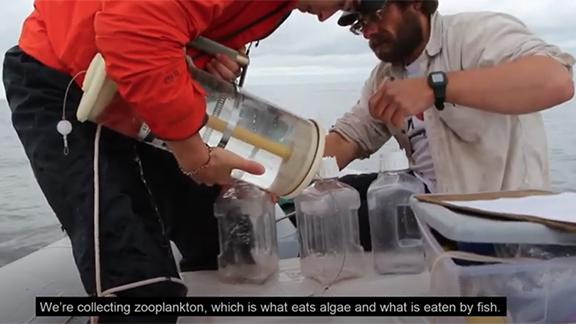
Minnesota Sea Grant-supported researchers are investigating the depths of Lake Superior to understand how ice cover affects the lake's physical and chemical dynamics and the phytoplankton and zooplankton that live there.
During two winters, the researchers will be out on the lake to measure light and collect temperature profiles, record water chemistry parameters, document the species, abundance, and depth distribution of phytoplankton and zooplankton. By examining winter water the researchers hope to better understand how changes in ice cover on Lake Superior and in other large cold lakes changes biological productivity and aquatic foodwebs.
This project was funded by Minnesota Sea Grant's 2016-2018 biennial request for proposals.
- Current MNSG research funding opportunities
- For more information on our support of research contact Valerie Brady, MNSG associate director of research.
Lead scientist(s)
Ted Ozersky
Large Lakes Observatory
University of Minnesota Duluth
(612) 726-7492
tozersky@d.umn.edu
Scholarly Articles
Shchapov, K. and Ozersky, T. (2023), Opening the black box of winter: Full-year dynamics of crustacean zooplankton along a nearshore depth gradient in a large lake. Limnol Oceanogr, 68: 1438-1451. https://doi.org/10.1002/lno.12355
Shchapov, K., Wilburn, P., Bramburger, A. J., Silsbe, G. M., Olmanson, L., Crawford, C. J., Litchman, E. & Ozersky, T. (2021). Taxonomic and functional differences between winter and summer crustacean zooplankton communities in lakes across a trophic gradient. Journal of Plankton Research, 43(5), 732-750. https://doi.org/10.1093/plankt/fbab050